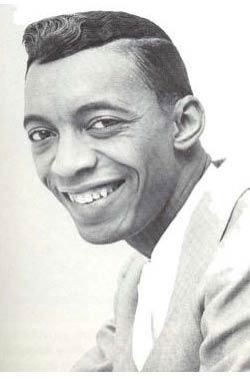Sixties Soul Music ![]()
![]() Okeh Records
Okeh Records ![]()
Okeh began by issuing popular songs, dance numbers, and vaudeville skits similar to the fare of other labels, but Heineman also wished to experiment with music for audiences neglected by the larger record companies. Okeh produced lines of recordings in German, Czech, Polish, Swedish, and Yiddish for the USA's immigrant communities. Some were pressed from masters leased from European labels, others were recorded by Okeh in New York.
In 1920, Ralph Peer's recordings by African-American blues singer Mamie Smith were a surprise smash hit for Okeh. The company perceived the significant little tapped market for blues and jazz by African American artists. In 1922, Okeh hired Clarence Williams to act as director of "Race" (African American) recordings for Okeh's New York studios, in addition to making recordings under his own name. Okeh then opened a recording studio in Chicago, Illinois, the center of jazz in the 1920s, where Richard M. Jones served as "Race" recordings director. Many classic jazz performances by the likes of King Oliver, Lucille Bogan, Sidney Bechet, Hattie McDaniel, and Louis Armstrong were recorded by Okeh. As part of the Carl Lindstrom Company, Okeh recordings were distributed by other Lindstrom labels including Parlophone in the United Kingdom.
Location recording
Okeh Records pioneered the practice of "location recording" in 1922. Starting in 1924, Okeh also sent mobile recording trucks to tour other parts of the country to record performers not heard in New York or Chicago. Regular return trips were made once or twice a year to New Orleans, Louisiana, Atlanta, Georgia, San Antonio, Texas, St. Louis, Missouri, Kansas City, Missouri, and Detroit, Michigan, recording a wealth of jazz and early country music artists.
In 1926, Okeh switched to the electric microphone system of audio recording. On November 11 of that year, controlling interest in Okeh was purchased by Columbia Records. Beside the legendary OKeh Race 8000 Series (which featured some of the great blues and black jazz of the era), OKeh recorded a series of legendary "chamber" hot jazz sessions with Joe Venuti and Eddie Lang, Frank Trumbauer's studio groups, Miff Mole's studio groups, among others. These are considered among the best of the 1920s hot small-group white jazz sessions.
Later years
Okeh releases grew infrequent after 1932, although the label continued into 1935. Columbia again revived it in 1940 after they lost the rights to the Vocalion name (by dropping the Brunswick label) and pressed it until 1946. It was revived once again in 1951 and used sporadically through to the 1990s. Epic Records took over management of Okeh in 1965. Among the artists during Okeh's "pop" phase of the 50s and 60s were Johnnie Ray, Little Joe & The Thrillers, and Little Richard. With soul music coming to the forefront in the 60s, Okeh signed Major Lance, who gave the label two big successes with "The Monkey Time" and "Um Um Um Um Um Um". The success of Okeh in the 1960s was dependent on producer Carl Davis and songwriter Curtis Mayfield. After they left the label (due to disputes with Epic/Okeh head Len Levy), Okeh gradually slipped in sales, and was finally deactivated discreetly by CBS Records in 1970.

Okeh: The New Era
In 1994, Sony Music reactivated the Okeh label (under distribution by Epic Records) as a new-age Blues label in an attempt to give new life to its heyday of American roots music. Okeh's first new signings included G. Love & Special Sauce (the first group of its kind to blend Blues with Hip-Hop), Keb' Mo, Popa Chubby, and Little Axe. Throughout the initial first year in celebration of the relaunch of Okeh after almost 25 years, singles for G. Love, Popa Chubby and Keb' Mo were released on 10-inch vinyl, just as they were in the days of 78 RPM records as an ode to the CBS tradition. By 2000, the Okeh label was yet again retired, and at that time, G. Love & Special Sauce was moved to Epic for that time. They would leave the label altogether shortly after that. Keb' Mo left Sony Music in 2006 and currently records for his own label, Yolabelle International
Sony Music Entertainment retains ownership of the Okeh catalogue with Epic continuing to manage the Okeh material.
The hopes and aspirations of the artists, producers and songwriters still live on as many of the Okeh discs of the mid to late 60's are still played today on the Northern Soul scene in the UK and across the globe. The contribution of the Okeh label and in particular the talents of Carl Davis cannot be underestimated in the world of soul music.